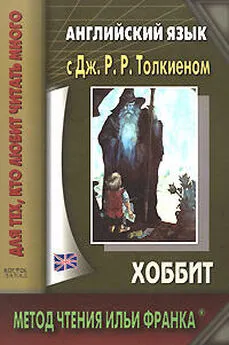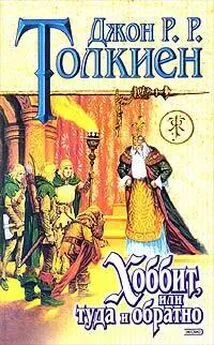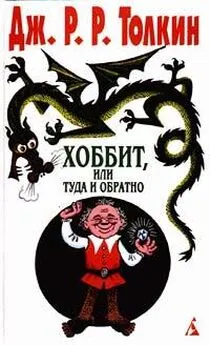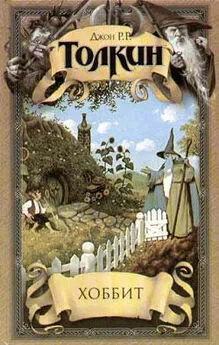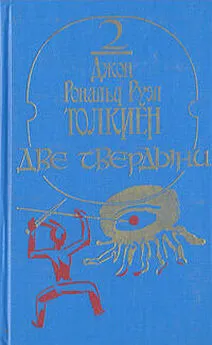Джон Толкиен - Английский язык с Дж. Р. Р. Толкиеном. Хоббит
- Название:Английский язык с Дж. Р. Р. Толкиеном. Хоббит
- Автор:
- Жанр:
- Издательство:АСТ, Восток-Запад
- Год:2008
- Город:Москва
- ISBN:978-5-17-048593-2, 978-5-478-00597-9
- Рейтинг:
- Избранное:Добавить в избранное
-
Отзывы:
-
Ваша оценка:
Джон Толкиен - Английский язык с Дж. Р. Р. Толкиеном. Хоббит краткое содержание
В книге предлагается произведение на английском языке Джона Р. Р. Толкиена «Хоббит», адаптированное (без упрощения текста оригинала) по методу Ильи Франка. Уникальность метода заключается в том, что запоминание слов и выражений происходит за счет их повторяемости, без заучивания и необходимости использовать словарь.
Пособие способствует эффективному освоению языка, может служить дополнением к учебной программе.
Предназначено для студентов, для изучающих английский язык самостоятельно, а также для всех интересующихся английской культурой.
Пособие подготовила Ольга Ламонова.
Английский язык с Дж. Р. Р. Толкиеном. Хоббит - читать онлайн бесплатно полную версию (весь текст целиком)
Интервал:
Закладка:
“O yes!” he said in answer to more questions from the hobbit. “You lose track of time inside goblin-tunnels. Today’s Thursday, and it was Monday night or Tuesday morning that we were captured. We have gone miles and miles, and come right down through the heart of the mountains, and are now on the other side — quite a short cut. But we are not at the point to which our pass would have brought us; we are too far to the North, and have some awkward country ahead. And we are still pretty high up. Let’s get on!”
“I am so dreadfully hungry, ” groaned Bilbo, who was suddenly aware that he had not had a meal since the night before the night before last. Just think of that for a hobbit! His stomach felt all empty and loose and his legs all wobbly, now that the excitement was over.
“Can’t help it, ” said Gandalf, “unless you like to go back and ask the goblins nicely to let you have your pony back and your luggage. ”
“No thank you!” said Bilbo.
“Very well then, we must just tighten our belts and trudge on — or we shall be made into supper, and that will be much worse than having none ourselves. ”
As they went on (пока они продолжали идти) Bilbo looked from side to side (Бильбо поглядывал из стороны в сторону) for something to eat (в поисках чего-либо съедобного); but the blackberries were still only in flower (но ежевика была все еще в цвету), and of course there were no nuts (и конечно, не было ни орехов), nor even hawthorn-berries (ни даже ягод боярышника). He nibbled a bit of sorrel (он обгрыз щепотку щавеля), and he drank from a small mountain — stream (и выпил из маленького горного ручейка) that crossed the path (что пересекал их путь), and he ate three wild strawberries (и он съел три лесные земляники; wild — дикий, дикорастущий ) that he found on its bank (которые он обнаружил на его берегу), but it was not much good (но это было все бесполезно). They still went on and on (они все продолжали идти и идти). The rough path disappeared (неровная тропинка пропала). The bushes (кусты), and the long grasses (и высокие травы; long — длинный ), between the boulders (между валунов), the patches of rabbit-cropped turf (участки дерна, обглоданные зайцами; to crop — щипать траву; подрезать ), the thyme (тимьян) and the sage (и шалфей) and the marjoram (и душица), and the yellow rockroses (и желтые скалистые розочки) all vanished (все исчезли), and they found themselves (и они неожиданно для себя оказались) at the top of a wide steep slope (на вершине широкого крутого склона) of fallen stones (из упавших камней), the remains of a landslide (остатка от оползня; to slide — скользить ). When they began to go down this (когда они начали спускаться по ним), rubbish and small pebbles rolled away from their feet (мусор и маленькие камешки покатились из-под их ног); soon larger bits of split stone went clattering down (вскоре куски побольше из отколовшихся камней загромыхали вниз; to split — раскалывать ) and started other pieces below them slithering and rolling (и заставили другие камни под собой: «под ними» скользить и перекатываться; to start — начинаться, отправляться, поражать ); then lumps of rocks were disturbed and bounded off (затем глыбы скал оказались потревоженными и начали отскакивать), crashing down with a dust and a noise (и рушиться в пыли и грохоте).
hawthorn [ˈhɔ: Ɵɔ: n] thyme [taɪm] marjoram [ˈmɑ: dʒ (ǝ) rǝm]
As they went on Bilbo looked from side to side for something to eat; but the blackberries were still only in flower, and of course there were no nuts, nor even hawthorn-berries. He nibbled a bit of sorrel, and he drank from a small mountain-stream that crossed the path, and he ate three wild strawberries that he found on its bank, but it was not much good. They still went on and on. The rough path disappeared. The bushes, and the long grasses, between the boulders, the patches of rabbit-cropped turf, the thyme and the sage and the marjoram, and the yellow rockroses all vanished, and they found themselves at the top of a wide steep slope of fallen stones, the remains of a landslide. When they began to go down this, rubbish and small pebbles rolled away from their feet; soon larger bits of split stone went clattering down and started other pieces below them slithering and rolling; then lumps of rocks were disturbed and bounded off, crashing down with a dust and a noise.
Before long (вскоре) the whole slope above them and below them (весь склон над ними и под ними) seemed on the move (казалось, был приведен в движение), and they were sliding away (и они скользили /на нем/), huddled all together (сгрудившись все вместе; to huddle — валить в одну кучу, сбивать в кучу; перемешивать ), in a fearful confusion (в ужасной неразберихе) of slipping, rattling, cracking slabs and stones (из-за скользящих, гремящих и трескающихся кусков и камней). It was the trees at the bottom that saved them (именно деревья внизу спасли их). They slid into the edge of a climbing wood of pines (они проскользили до самого края растущего вверх соснового леса; to climb — карабкаться, взбираться ) that here stood right up the mountain slope (который рос: «стоял» там как раз вверх по склону горы) from the deeper darker forests of the valleys below (из более густых и темных лесов из долины внизу). Some caught hold of the trunks (некоторые из них ухватились за стволы /деревьев/) and swung themselves into lower branches (и залезли на нижние ветви; to swing (swung) — качать (ся), колебать (ся); вешать, подвешивать ), some (like the little hobbit) got behind a tree (некоторые (как наш маленький хоббит) спрятались за деревья) to shelter from the onslaught of the rocks (чтобы укрыться от стремительного натиска скал; onslaught — бешеная атака, нападение ). Soon the danger was over (вскоре опасность миновала), the slide had stopped (оползень: «скольжение» прекратился), and the last faint crashes could be heard (и последний слабый грохот: «трески» можно было расслышать) as the largest of the disturbed stones (пока самые большие из потревоженных камней) went bounding and spinning (пронеслись, отскакивая и вращаясь) among the bracken and the pine-roots (среди папоротника и корней деревьев) far below (далеко внизу).
confusion [kǝnˈfju: ʒ (ǝ) n] onslaught [ˈɔnslɔ: t] bracken [ˈbrækǝn]
Before long the whole slope above them and below them seemed on the move, and they were sliding away, huddled all together, in a fearful confusion of slipping, rattling, cracking slabs and stones. It was the trees at the bottom that saved them. They slid into the edge of a climbing wood of pines that here stood right up the mountain slope from the deeper darker forests of the valleys below. Some caught hold of the trunks and swung themselves into lower branches, some (like the little hobbit) got behind a tree to shelter from the onslaught of the rocks. Soon the danger was over, the slide had stopped, and the last faint crashes could be heard as the largest of the disturbed stones went bounding and spinning among the bracken and the pine-roots far below.
“Well (итак)! that has got us on a bit (это нас немного продвинуло вперед), ” said Gandalf; “and even goblins tracking us (и даже гоблинам, выслеживающим нас) will have a job (придется потрудится: «найдется работа») to come down here quietly (чтобы спуститься сюда тихо). ”
“I daresay (да уж: «я полагаю»), ” grumbled Bombur (проворчал Бомбур); “but they won’t find it difficult (но для них окажется очень просто: «но они не сочтут это сложным») to send stones bouncing down on our heads (послать камни скатиться прямо нам на головы). ” The dwarves (and Bilbo) were feeling far from happy (гномы (и Бильбо) чувствовали себя далеко не довольными), and were rubbing their bruised (и растирали свои синяки) and damaged legs and feet (и поврежденные ноги и ступни).
“Nonsense (чепуха)! We are going to turn aside here (мы свернем здесь; to turn aside — отклоняться: «повернуть в сторону» ) out of the path of the slide (с пути движения оползня). We must be quick (мы должны торопиться: «быть быстрыми»)! Look at the light (посмотрите на свет)!”
The sun had long gone behind the mountains (солнце уже давно ушло за горы). Already the shadows were deepening about them (уже тени сгущались вокруг них; to deepen — углубляться; усиливаться ), though far away (хотя, вдалеке) through the trees (сквозь деревья) and over the black tops of those growing lower down (и над темными верхушками тех /деревьев/, что росли ниже) they could still see (они все еще могли видеть) the evening lights on the plains beyond (вечерний свет вдали, на равнинах). They limped along now as fast as they were able (они плелись теперь так скоро, как только они могли; to limp — хромать ) down the gentle slopes of a pine forest (вниз по пологим склонам соснового леса; gentle — мягкий, тихий, слабый ) in a slanting path leading steadily southwards (по наклонной тропе, ведущей неизменно на юг). At times they were pushing through a sea of bracken (временами они проталкивались сквозь море папоротников) with tall fronds rising right above the hobbit’s head (с высокими листами папоротника, поднимающимися прямо над головой хоббита; frond — расчлененный, похожий на ветку лист /напр., папоротника, пальмы, бананового дерева и т. п. / ); at times they were marching along quiet as quiet (временами они передвигались тихо, как только могли тихо) over a floor of pine-needles (по поверхности из сосновых иголок; floor — пол, настил, перекрытие ); and all the while the forest-gloom got heavier (и все это время мрак леса становился все плотнее; heavy — тяжелый ) and the forest-silence deeper (и тишина леса /становилась/ все беззвучнее: «глубже»). There was no wind that evening (тем вечером не было ветра) to bring even a sea-sighing (чтобы принести даже дуновение моря) into the branches of the trees (в ветки деревьев).
Читать дальшеИнтервал:
Закладка:
